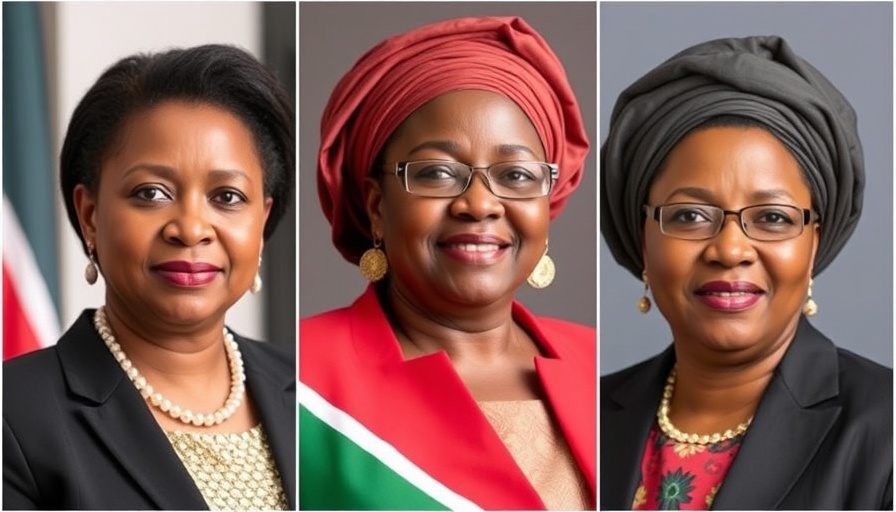
Namibia’s Landmark Leadership Transformation
Namibia has recently made history by ascending to a leadership structure where women now occupy the top three political positions. President Netumbo Nandi-Ndaitwah’s assumption of the presidency marks not only a first for the nation but also a significant symbol of gender equality within Africa’s political landscape. She is joined by Vice President Lucia Witbooi and Speaker of the National Assembly Saara Kuugongelwa-Amadhila, collectively making Namibia a unique case in the continent's governance.
The Importance of Women in Political Leadership
This monumental shift in leadership resonates beyond Namibia's borders. With women holding crucial roles, it highlights the changing dynamics in African politics, where inclusivity is gaining traction. Out of 14 ministers appointed by Nandi-Ndaitwah, a striking eight are women, which reflects a commitment to gender equality that has been largely absent in many regions.
Long Road to Representation
President Nandi-Ndaitwah’s journey began at the age of 14 when she engaged in the South West Africa People’s Organization (SWAPO), ultimately becoming a pivotal figure in Namibia's liberation movement. During her tenure, she has championed the cause of women’s rights and social equity, presenting a blueprint for the empowerment of marginalized groups in governance.
The Ripple Effects on Africa’s Political Climate
The ascent of women leaders in Namibia could inspire similar movements in neighboring countries. It sets a potent example of how political structures can evolve to embrace diversity and representation, prompting other nations to rethink their leadership dynamics. As female leadership continues to gain footing, the potential for transformative policies that directly address gender disparities and economic inequalities grows significantly.
Future of Namibia’s Leadership Landscape
This leadership paradigm shift could serve as a catalyst for reforms across Africa, especially in regions where women remain underrepresented in politics. The significance of having a female president and vice president cannot be overstated—it empowers a generation of women and encourages them to participate actively in governance and public policy discourse. Furthermore, strong women leaders like Nandi-Ndaitwah, Witbooi, and Kuugongelwa-Amadhila are expected to influence policies related to economic growth and social welfare, which are essential for the region's progress.
Call to Action: Engage in African Governance
As global leaders and investors, engaging with these emerging trends is crucial. Monitoring Namibia's political developments is essential for understanding the evolving nature of African governance and its economic implications. The rise of female leadership not only transforms local policies but also shapes international relations and investment opportunities in the continent. Let’s remain informed and proactive in the discussion surrounding gender inclusivity and its role in shaping Africa's future.
 Add Row
Add Row  Add
Add 


 Add Row
Add Row  Add
Add 

Write A Comment